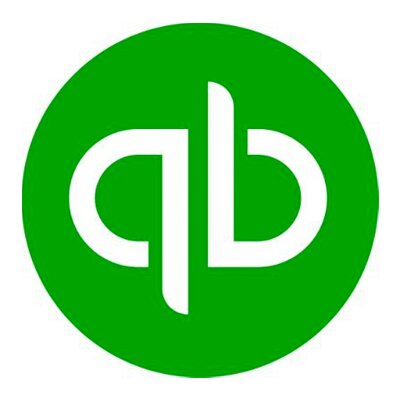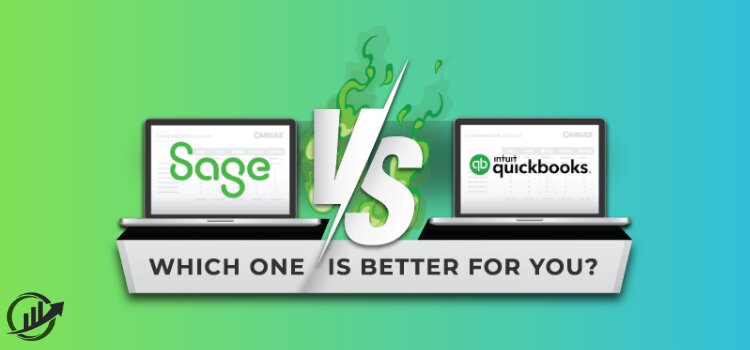Consider the size of your business, your budget, and the level of technical support you may require when choosing between Sage and QuickBooks. Sage is known for its robust reporting capabilities and scalability for larger businesses, while QuickBooks is user-friendly and ideal for small to medium-sized businesses. Ultimately, selecting the right accounting software will depend on your unique business requirements and goals. Both Sage and QuickBooks are popular accounting software options that cater to different business needs, so it’s important to consider factors such as cost, user-friendliness, and scalability before making a decision. By comparing the key features of each program and evaluating how they align with your specific requirements, you can confidently choose the best accounting solution for your business.
In this guide, you’ll learn about the key differences between Sage and QuickBooks, helping you make an informed decision on which software is best for your business. Whether you’re a small startup or a large corporation, understanding the strengths and weaknesses of each platform will be crucial to streamlining your financial processes. Our team of experienced professionals will work closely with you to understand your unique needs and provide tailored solutions that fit your budget and timeline. With our expertise and dedication to customer satisfaction, you can trust that your financial management is in good hands.
QuickBooks Accounting Software vs. Sage Accounting Software
When choosing between Sage and QuickBooks for your business, it’s important to carefully evaluate what features and tools are most important to you. Seeking advice from an accounting expert or software specialist can provide valuable insights and help you make an informed decision that aligns with your business goals. Before making a decision between Sage and QuickBooks, it’s a good idea to get feedback from other businesses in your industry who have used these platforms. They can provide insight on what works well and what doesn’t. When choosing which software to use, consider factors such as the size of your business, the complexity of your financial transactions, and your budget. Consulting with a financial advisor or accountant can also help you make an informed decision that aligns with your needs.
What is Sage 50 Accounting Software?

Overall, Sage accounting software provides users with the tools they need to effectively manage their finances and streamline their business operations. With its user-friendly interface and customizable features, businesses can easily tailor the software to meet their specific needs and goals. Sage’s reputation for reliability and customer support makes it a top choice for companies looking to improve their financial management processes. This software ultimately helps businesses streamline their operations, make informed decisions, and adapt to changing market trends quickly. With its user-friendly interface and robust features, it is a valuable tool for any organization looking to optimize their financial management processes.
Read More about Sage : Choose Sage 50 Accounting Software
A Quick Overview of QuickBooks Accounting Software

With QuickBooks, businesses can easily keep track of their finances and generate detailed reports to help with decision-making. It also offers cloud-based solutions for easy access anytime, anywhere. Overall, QuickBooks is a reliable and efficient tool for businesses looking to streamline their financial processes. QuickBooks also offers user-friendly interfaces and customizable features, making it easy for businesses to track expenses and generate detailed financial reports. With its ability to streamline processes and improve accuracy, QuickBooks is a valuable tool for businesses of all sizes looking to optimize their financial management.
QuickBooks Online also offers a mobile app for on-the-go access to your financial data, making it convenient for business owners who are constantly on the move. Additionally, QuickBooks Desktop is known for its robust reporting features, making it a popular choice for businesses that require in-depth financial analysis. By understanding the unique strengths of each software, you can choose the one that best suits your business needs and goals.
Read More about QuickBooks : Should You Choose QuickBooks Accounting Software
Five Effective Features of Sage Accounting Software
When selecting a tool for your business, it’s important to consider the features it offers. Below, we’ve highlighted five key features of Sage software that will help you better understand how it can benefit your business. Take a look to see how Sage can streamline your operations and boost productivity!
- Advanced inventory management: Sage 50 is a reliable and efficient tool for businesses looking to streamline their inventory management processes. With its user-friendly interface and robust features, it can help businesses save time and improve accuracy in tracking their inventory. Plus, the software offers customizable reporting options to help businesses make informed decisions based on real-time data.
- Detailed Financial Reporting: The software offers robust financial reporting tools that enable the business to generate a wide variety of reports, such as balance sheets, cash flow statements, income statements, and customizable financial reports. This market-leading software allows users to create comparative financial reports and analyze business performance over time. This also supports regular compliance with the built-in tax reporting and audit trail functionality that ensures accurate and transparent financial records.
- Payroll Processing and Management: The Sage 50 includes powerful payroll processing capabilities, enabling businesses to manage employee payroll efficiently. The software manages various payroll tasks, such as calculating wages, generating paychecks, and withholding taxes. It supports direct deposit, tax form preparation, and electronic filing of payroll taxes. In addition, the software provides features such as time and attendance tracking, benefits management, and compliance with federal and state payroll regulations, simplifying the payroll process and reducing administrative burden.
- Job Costing and Project Supervision: With the ability to monitor project progress in real-time, businesses can quickly identify any potential issues and make necessary adjustments to keep projects on track. This feature also allows for better allocation of resources and improved overall project management efficiency. Sage’s job costing feature is a valuable tool for businesses looking to streamline their project management processes and maximize profitability.
- Integrated Payment Solutions: By utilizing Sage 50’s integrated payment solutions, businesses can save time and reduce the chances of human error when handling financial transactions. This ultimately leads to improved efficiency and peace of mind for both the business and its customers. Sage 50’s user-friendly interface makes it easy for users to navigate through the payment process, making it a valuable tool for businesses of all sizes.
Five Effective Features of QuickBooks Accounting Software
QuickBooks offers a user-friendly interface, making it easy for beginners to navigate and use effectively. Additionally, it provides a wide range of integrations with other business tools, allowing for seamless workflow and increased efficiency in managing finances. With QuickBooks, you can track expenses, create invoices, and generate detailed financial reports with just a few clicks.
- Invoicing and Payments: QuickBooks makes it easy for businesses to keep track of their invoices, see which payments are still pending, and understand how their revenue is changing over time. By providing detailed reports, QuickBooks helps businesses make smart choices and stay financially healthy. In short, QuickBooks streamlines invoicing and boosts productivity for businesses big and small.
- Expense Tracking and Management: The software makes it easy for businesses to keep track of their expenses by allowing QuickBooks users to link their bank accounts and credit cards. This entails the automatic import and categorization of transactions, thereby reducing time and streamlining the financial management process. With QuickBooks, you can easily take pictures of your receipts to keep track of expenses. You can also create rules to categorize transactions automatically, which helps with accurate bookkeeping. This feature gives you a clear picture of where your money is going and assists with budgeting and financial planning.
- Payroll Processing: QuickBooks provides its users with robust payroll processing features that streamline employee wage and tax management. The software calculates payroll taxes automatically, ensures compliance with federal and state regulations, and handles year-end tax forms. QB users have the ability to set up direct deposits for employees, manage benefits and deductions, and track time and attendance. It also provides payroll reports that include insights into labor costs, tax liabilities, and payroll summaries, making payroll management efficient and accurate.
- Financial Reporting and Analytics: With QuickBooks, businesses can easily create a variety of detailed financial reports, such as profit and loss statements, balance sheets, cash flow statements, and expense reports. Companies can customize these reports to meet their specific needs. By providing real-time insights into business performance, QuickBooks helps users make informed decisions that can drive growth and success. With QuickBooks, you can easily create custom reports, filter data, and schedule reports to stay on top of your finances. These features help businesses analyze financial information, monitor important metrics, and maintain financial stability.
- Inventory Management: The QB software makes it easy for businesses to monitor and manage their inventory by providing tools to track stock levels, sales, and purchases. Users can input detailed information for each inventory item, like cost, sale price, and quantity available, to keep everything organized and up-to-date. QuickBooks enables you to effortlessly monitor your inventory across various locations, receive alerts when stock is depleting, and establish reorder points. You can also generate reports that show how your inventory is moving, its value, and how profitable it is. This helps you make sure you always have enough stock on hand, avoid running out of items, and stay on top of your supply chain.
Read Another Blog : Difference Between Bookkeeping and Accounting
Conclusion!
Make sure to keep your accounting software updated so you can benefit from new features that will help you run your business better. Check for updates regularly and install them right away to make sure you’re getting the most out of your software. And if you liked this blog post, be sure to check out our other blogs for more tips on managing your business effectively.

